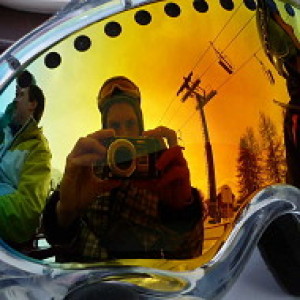Belo, my new home
Belo is a small rural village in the north west province of Cameroon. It has a population of approximately 5000 people. Locals earn a living through farming, selling produce, taxiing (on motorbikes) and a few trades (building, carpentry). Most people survive on 78p-£1.24 a day. Average life expectancy is around 51. But despite these gloomy statistics, people in Belo are happy and friendly. Walking around the village today, I was greeted by smiling faces, warm handshakes and so many people saying "welcome, welcome" that I lost count. The little children shout "Hello!" when you walk past them and when you ask them how they are or how school was they reply "fine". It seems everything is always 'fine'. I'm not sure if this is because it's the only word they can remember from their parrot fashion teaching or because the local tradition is that children should be disciplined, well behaved and obedient (and therefore say what is expected of them and not what they truly feel.)
Belo is Anglophone Cameroon so people speak English over French as well as Kom - the local tongue and Pigeon which is an uncultured and lazy but widely used language which mixes French and English words together. Pigeon is frowned upon in schools and children speaking Pigeon are punished. I found Kom a difficult language to pick up but Phil, my new housemate, seems to be a natural at it. As we walked into town he would greet everyone we passed in Kom and their faces would light up.
Belo is not Africa as most people know it. There are no vast plains or savannahs here. There are no wilder beast, lions or crocodiles. In fact, were it not for the red clay paths, the quintessential roadside stalls and the local people, this could be somewhere completely different. On stepping out of the volunteer house this morning, I was amazed to see that Belo is surrounded by picturesque mountains. If I were to look into the distance and cut the foreground from my vision, I could be in Wales. There is an abundance of greenery here and the climate is surprisingly cool. The days are warm but not humid and the nights can be chilly. As a result of this, the bugs are minimal. You'd be hard pushed to find a mosquito here but I am assured they are around.
One big surprise for me today was that people look healthy. That is not to say that they are healthy because water sanitary is not good and the children especially get ill with viruses and worms but of the people we passed in the village, most were physically in good shape with good teeth, hair and skin. The boys in particular are strong with broad shoulders, small waists and muscular arms and legs. They don't workout to look like this. It is just in their genetics. As Phil and I glanced at their sculptured physiques and then at our own pasty white bodies and spindly limbs, we plunged head first into an inferiority complex.
Poverty is not overtly obvious in Belo. There are no slums or beggars and there is no sewerage flowing down the streets. The locals have clothes and shoes (albeit many different types of shoes) and they do not ask for money. So far they have not even tried to rip off the 'rich white man' which before my trip I was told to look out for in Africa. The price they tell me is the price they tell their fellow villagers.
I think this illusion of wellbeing is partly due to the climate and altitude which allows an abundance of fruit and vegetables to grow. But I must also keep in mind that these people do not have water piped into their homes, they have limited, unreliable or no electricity and they go to toilet in a pit. I think to truly understand life in Belo I need to more than scratch the surface.
- 0
- 0
- Panasonic DMC-TZ8
- 1/33
- f/3.3
- 4mm
- 400

Comments
Sign in or get an account to comment.


